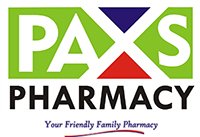Typhoid fever: causes, symptoms, and preventive measures
Typhoid fever is caused by salmonella typhi bacteria which can be spread via contaminated food and water or close contact with an infected person. For instance, if a food seller who is infected with typhoid fever defecates without properly washing his hands before handling his customer’s food, chances are that the customer might contract the typhoid fever when she consumes that food.
It is not enough to run water through the hands after using the toilet. The hands must be washed properly with soap.
Common symptoms of typhoid fever include –
- Headaches
- Poor appetite
- Generalized aches and pains
- High fever
- Lethargy
- Diarrhea
- Abdominal pain and discomfort
- Chest congestion
Sometimes, even when the symptoms are eliminated, people may still carry the typhoid bacteria, which means they can still spread it to others through their faeces.

How can I protect myself against typhoid fever?
Typhoid fever is common in places with poor sanitation and a lack of safe drinking water. Therefore, safe drinking water, improved sanitation and adequate medical care can help to prevent and control typhoid fever. However, in developing countries like Nigeria, it may be difficult to achieve the needed level of sanitation and access to potable water. Hence, some experts believe that vaccines are the best way to control typhoid fever.
Unfortunately, the vaccine may not provide total protection, so you need to always follow these guidelines –
- Wash your hands thoroughly. Wash your hands before eating or preparing food and after using the toilet. Have an alcohol-based hand sanitizer handy for times when water is not available.
- Avoid drinking untreated water. Contaminated drinking water is an easy way to contract typhoid fever. It is pertinent that the water you drink is safe. You can use water guard to purify water or boil your water if you cannot afford bottled water.
- Thoroughly wash raw fruits and vegetables. Use salt and clean water to wash your fruits and vegetables always thoroughly, if possible, more than once.
- Opt for hot foods. If you must eat outside, make sure it is served hot.
- Consult your doctor or pharmacist. If you are in close contact with an infected person or you notice any of the above-mentioned symptoms, please consult the experts.
















